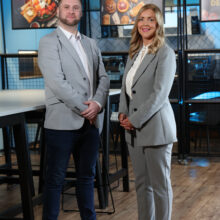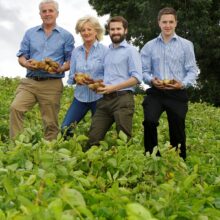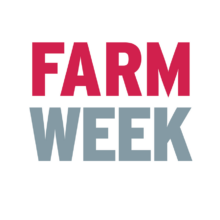Free-From Trend Offers Opportunities For Local Companies
Recent market research figures from Kantar Worldpanel have indicated that the free- from category has become the fastest growing food category. And it’s a category in which many of our companies are achieving success. Many more will clearly have to review their ingredients in line with this important market trend.
Free-from foods has been boosted by 36 percent year on year and 54 percent of the UK population purchased a free-from product during the first quarter of 2017 – 3.3 million more people than last year
Many consumers put their interest in free from down to a variety of concerns including allergies, intolerances, health, animal welfare, environment and weight management. Many are switching to free from either permanently or as part of a pick and mix approach to suit their lifestyles.
Preventing even faster growth of the category is a perception among consumers that free-from foods are more expensive. This means that existing companies and others planning to enter the category need to look closely at their costs to be able to compete and generate a profit. 
A growing number of focused campaigns, including last week’s curious World Plant Milk Day, have led to consumers being better informed than ever before about the benefits of free-from products.
Free-from is manifestly not a fad. It’s not going to go away. Most of our local supermarkets, delis and independent retailers now feature free from foods from a growing number of local products, many of which have won national awards for quality and taste, on their shelves and chill cabinets.
What the various focused campaigns are doing is to encourage more consumers to look more closely at their food and not just in terms of fat and sugar content but also in gluten, wheat, dairy and eggs.
While the quality, taste and provenance of locally produced food are now well recognised here, trends towards free-from products will impact their performance.
Our smaller companies clearly do need to keep abreast of the developing trend towards food and drink perceived as being healthier. Fortunately, there are bodies around, including the Food Innovation Centre at Loughry, Comber, Foodovation at the North West Regional Further Education College in Londonderry as well as Belfast Metropolitan Institute, to help them to either create new products or adapt existing ones.
These organisations can also help with the essential nutritional information on product labels. Invest NI, for instance, offers help in these areas through its Innovation Voucher programme, which provides funding for agreed projects that enable smaller firms to link up with universities or colleges.
Invest NI’s Business Information Centre in Belfast also holds substantial library documentary and online material on market trends worldwide.
Innova Market Insights, furthermore, identified ‘Plant Powered Growth’ as one of its top trends for this year, and the figures suggest this trend will continue to gather momentum.
Another developing trend here is the interest in wild herbs and plants among leading chefs, including Dani Barry at EIPIC, Belfast, Will Brown at the Old Schoolhouse, Comber and Paul Cunningham at Brunel’s in Newcastle, now increasingly looking for very different ingredients and turning to foraging for edible plants and flowers. I was privileged to spend some time with a group of local chefs who were very knowledgeable about edible wild plants, which was fascinating.
Consumer tastes are changing and new opportunities are emerging for producers with fingers on the pulse.








